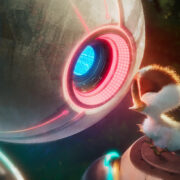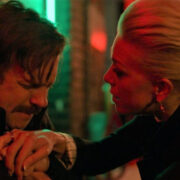THE ETERNAL DAUGHTER: The Ghosts of Our Memories
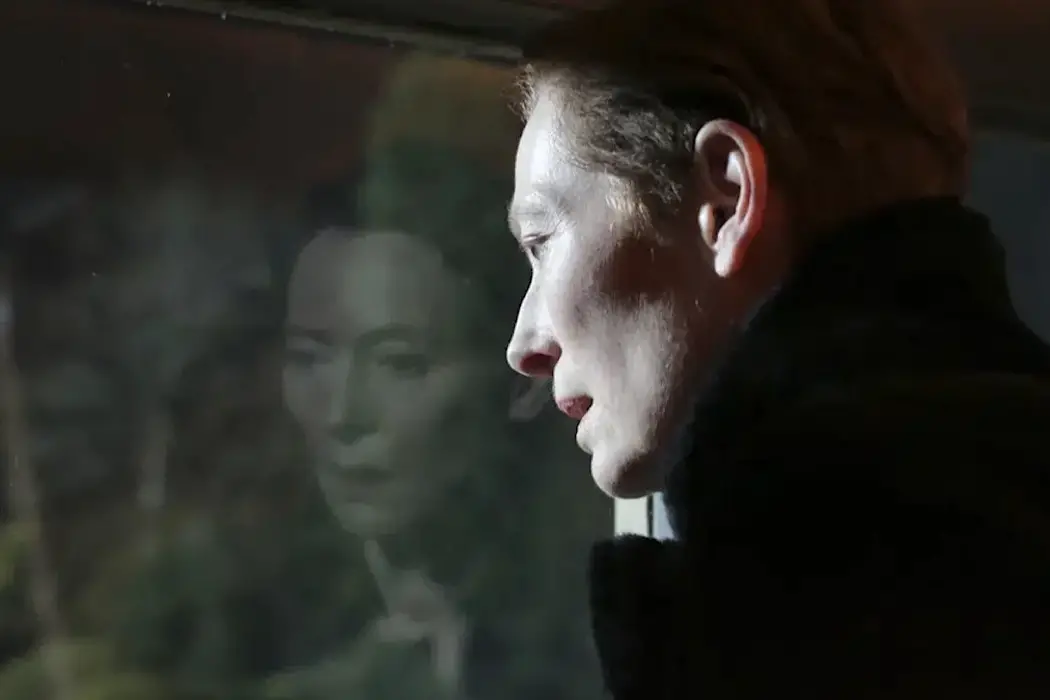
Lee Jutton has directed short films starring a killer toaster,…
Joanna Hogg has long mined her own life for her semi-autobiographical, deeply personal films, most notably in her two-part opus chronicling a young filmmaker’s coming of age, The Souvenir. Her latest, The Eternal Daughter, is both a continuation and a departure from this practice, channeling Hogg’s memories of her mother through the medium of a ghost story that bears the influence of Lewis Allen’s The Uninvited and Stanley Kubrick’s The Shining. The result is a truly haunting film that flirts with the supernatural yet remains grounded in human emotion, thanks to Hogg’s intimate storytelling and Tilda Swinton’s remarkable dual performance.
The Old Dark House
Filmmaker Julie (Swinton) has brought her elderly mother, Rosalind (also Swinton) to a historic hotel deep in the countryside for her birthday. (Yes, Julie and Rosalind are also the names of the mother and daughter in The Souvenir, in which Rosalind is played by Swinton and Julie by her daughter, Honor Swinton-Byrne; it’s all too easy to see The Eternal Daughter as a continuation of their story.) Julie hopes to work on a screenplay about her mother during their stay, but finds herself struck with writer’s block, worried that those memories are not hers to draw upon.
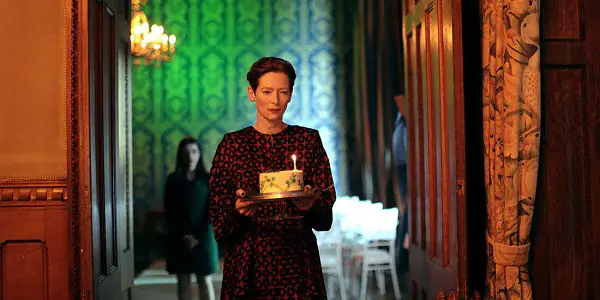
The hotel is part of those memories; it used to belong to Rosalind’s aunt, and Rosalind was evacuated there with her siblings during the London Blitz. Some of the memories are lovely, such as children jumping up and down on the velvet couches in what used to be the drawing-room; some are heartbreakingly sad, such as when an elder brother’s death at the front was reported and Rosalind was deemed too young to travel back to London for the funeral. Hearing these stories, Julie is stricken with guilt and horror that verges on the histrionic: how could she have brought her mother back to such a place and unearthed these memories after so many years?
There are rumors, naturally, that the hotel is haunted, rumors that feel dangerously close to the truth when Julie tries to sleep at night but is kept awake by strange noises in the empty room upstairs. When she’s out walking Rosalind’s dog, Louis (an adorable scene-stealer, it must be said), Julie thinks she sees the shadow of someone standing in one of the hotel’s windows. Is this one of the ghosts rumored to be lurking around the estate, or just more resurrected memories coming back to haunt her and her mother?
The Shadow of the Past
Hogg allows her film to burn slowly but surely, avoiding easy jump scares in favor of building a heady atmosphere of suspense and paranoia. The film’s lush sound design is a substantial reason for this; it’s such a strange, subtle mix of sounds that you, like Julie, may find yourself wondering if you’re really hearing something or if it’s just your imagination. So is Ed Rutherford’s gorgeous cinematography, which highlights all of the hotel’s delightful Gothic trimmings and emphasizes the unknown hidden in the darkness of each shadow. Shots are often held long, sometimes so long that one cannot shake a sense of the uncanny even if nothing actually happens. (For me personally, the spooky vibes were only accentuated by the presence of sweet, snuggly Louis, who I kept assuming would meet some kind of terrible fate—rest assured, animal lovers, he does not.)
The Eternal Daughter is also shot through with a surprising amount of deadpan humor courtesy of Julie’s anxious interactions with the hotel’s brusque receptionist (Carly-Sophia Davies). They play off of each other to hilarious effect, their tempers simmering just beneath the surface of every passive-aggressive word and gesture. On the other end of the spectrum are Julie’s heartwarming interactions with Bill (Joseph Mydell), the groundskeeper who worked for decades in the hotel with his now-deceased wife and cannot bring himself to leave those memories behind. Whether or not Bill really exists, or is a ghost himself, is another question altogether, and one that Hogg leaves wonderfully vague.
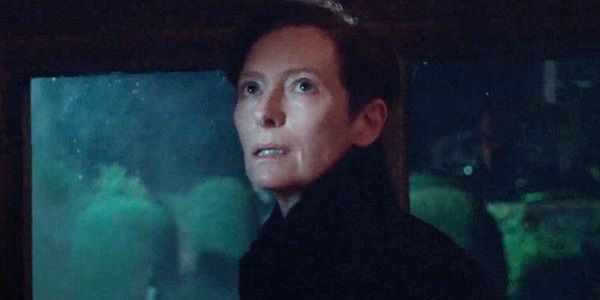
The house in which The Eternal Daughter was shot is indeed a hotel, rumored to be haunted, that once belonged to Hogg’s family. Combine such a location with a leading actress who the filmmaker has known since she was a child, and it’s no wonder the film feels shockingly personal even for Hogg. In a Q&A with Martin Scorsese following my screening of the film, Hogg said that when shooting scenes in which Swinton played both mother and daughter, they would shoot Swinton as one character first while Hogg played the other opposite her. Together, they would talk and improvise dialogue and moments influenced by both their mothers and their relationships with them, including the desire to know the mystery person who somehow remains at the heart of this person who has been present all their lives. Indeed, one of the main sources of tension between Julie and Rosalind in the film is the realization that there is so much about Rosalind that Julie does not know, and may never know. And if that’s the case, how can she dare make a film about her?
It’s hard to imagine another actress who could have played both characters in such a complicated mother-daughter relationship as well as Tilda Swinton. Her performances as the high-strung, almost unbearably anxious Julie and the much calmer, more reserved Rosalind are some of the most impressive in a career marked by risk-taking work. The characters differ most in how they express themselves; Julie launches into such intense crying jags every time she thinks Rosalind is upset that one cannot help but laugh awkwardly at some of them, while Rosalind epitomizes the stiff upper lip of the British upper classes, which only aggravates Julie more. Swinton manages to convey these differences without succumbing to easy, obvious quirks that a lesser actor might use as a prop to support themselves; instead, it’s all emotion, rendered raw and real on her face.
Conclusion:
Is The Eternal Daughter a scary movie in the traditional sense? No, but it will send shivers down your spine and into your soul.
The Eternal Daughter was released in theaters in the U.S. on December 2, 2022. You can find more international release dates here.
Watch The Eternal Daughter
Does content like this matter to you?
Become a Member and support film journalism. Unlock access to all of Film Inquiry`s great articles. Join a community of like-minded readers who are passionate about cinema - get access to our private members Network, give back to independent filmmakers, and more.
Lee Jutton has directed short films starring a killer toaster, a killer Christmas tree, and a not-killer leopard. Her writing has appeared in publications such as Film School Rejects, Bitch: A Feminist Response to Pop Culture, Bitch Flicks, TV Fanatic, and Just Press Play. When not watching, making, or writing about films, she can usually be found on Twitter obsessing over soccer, BTS, and her cat.


